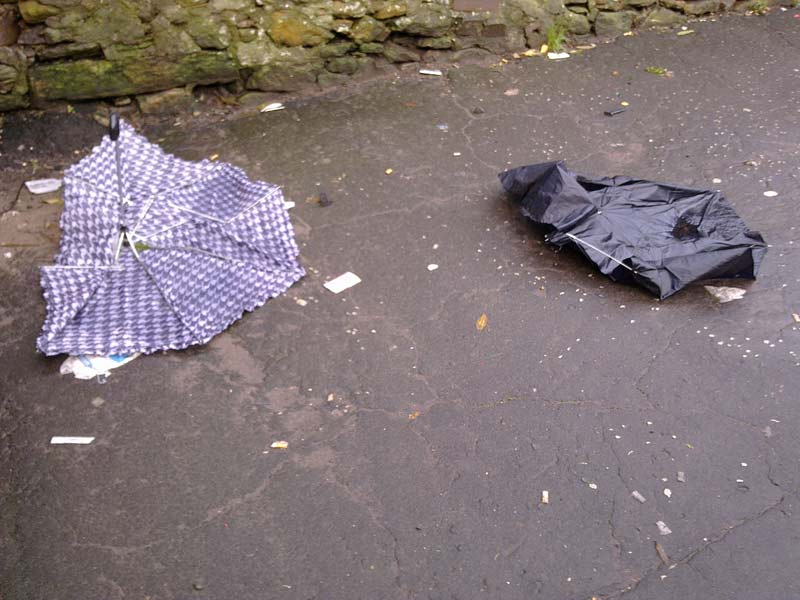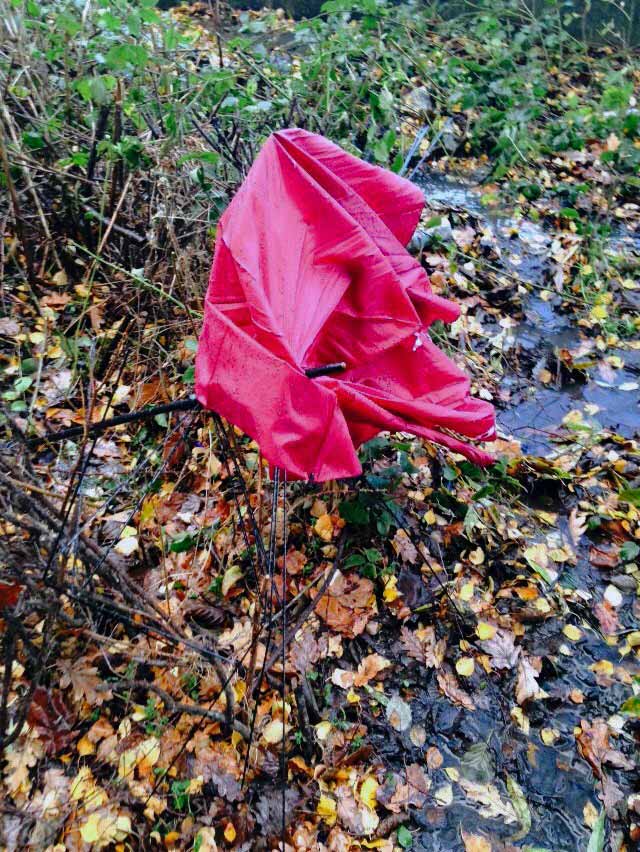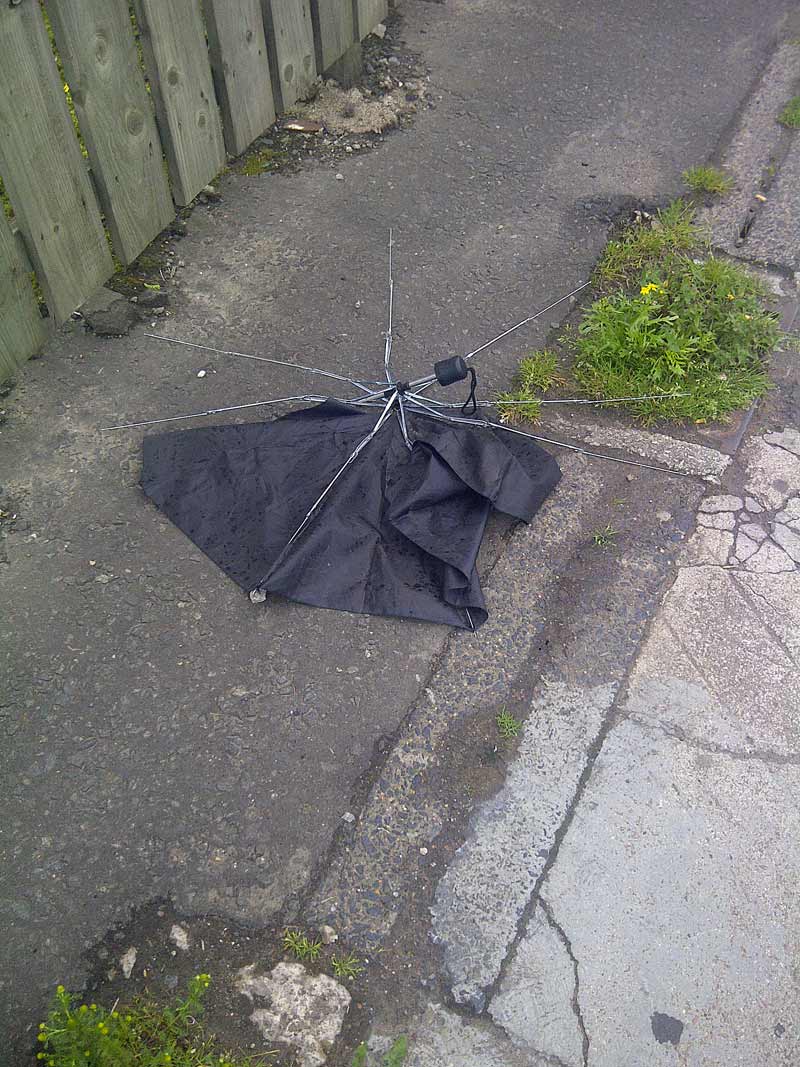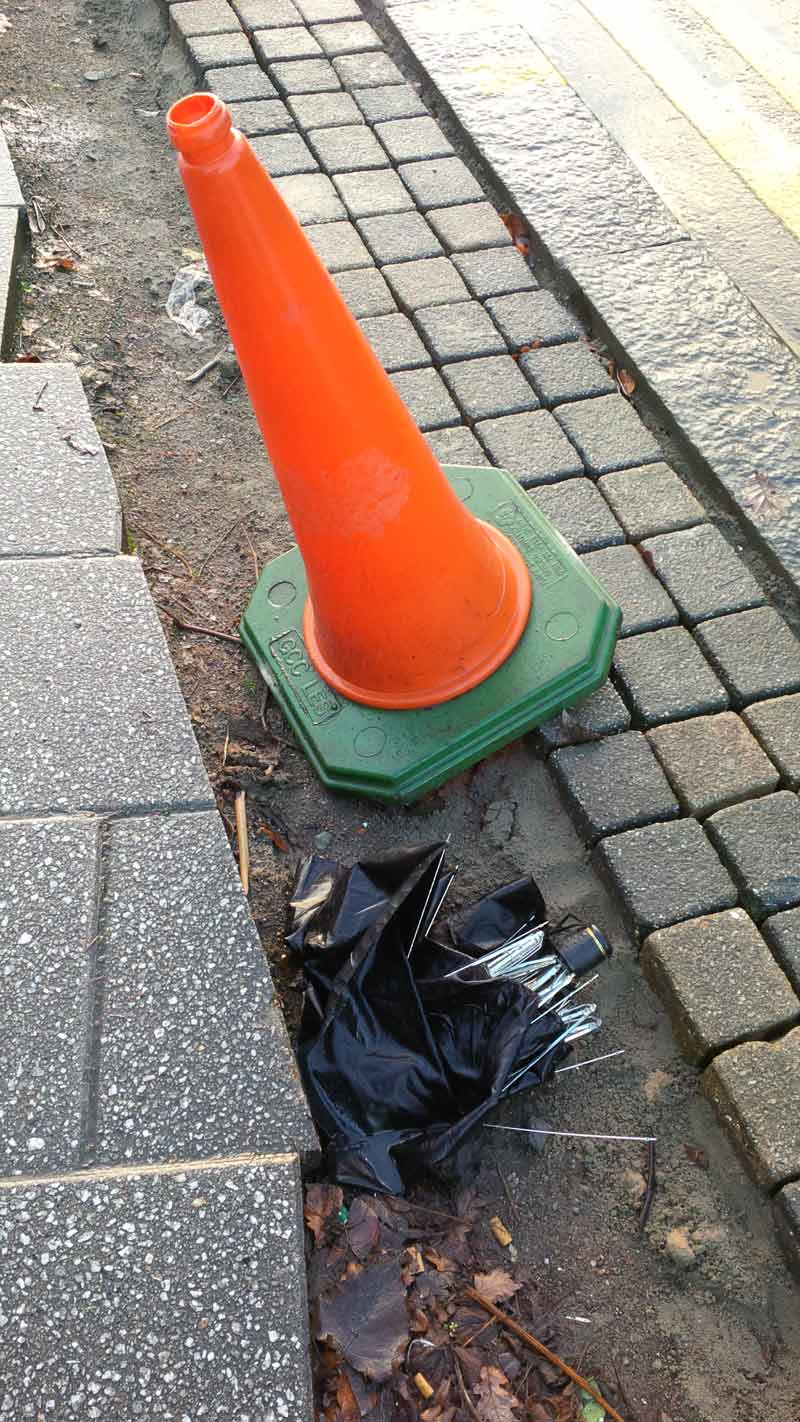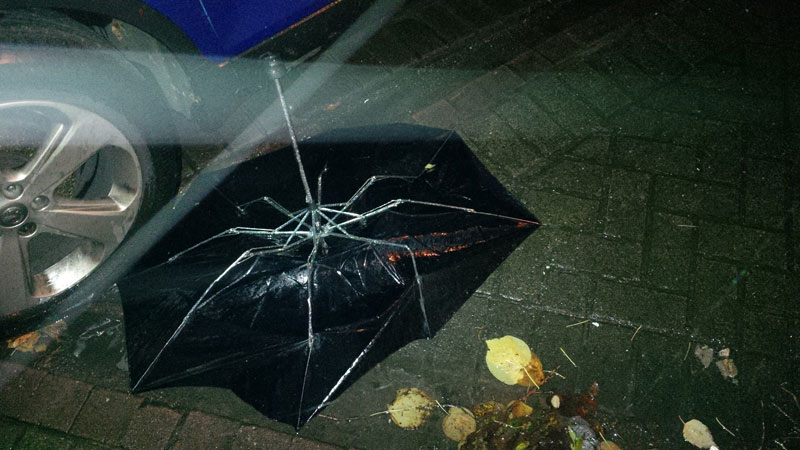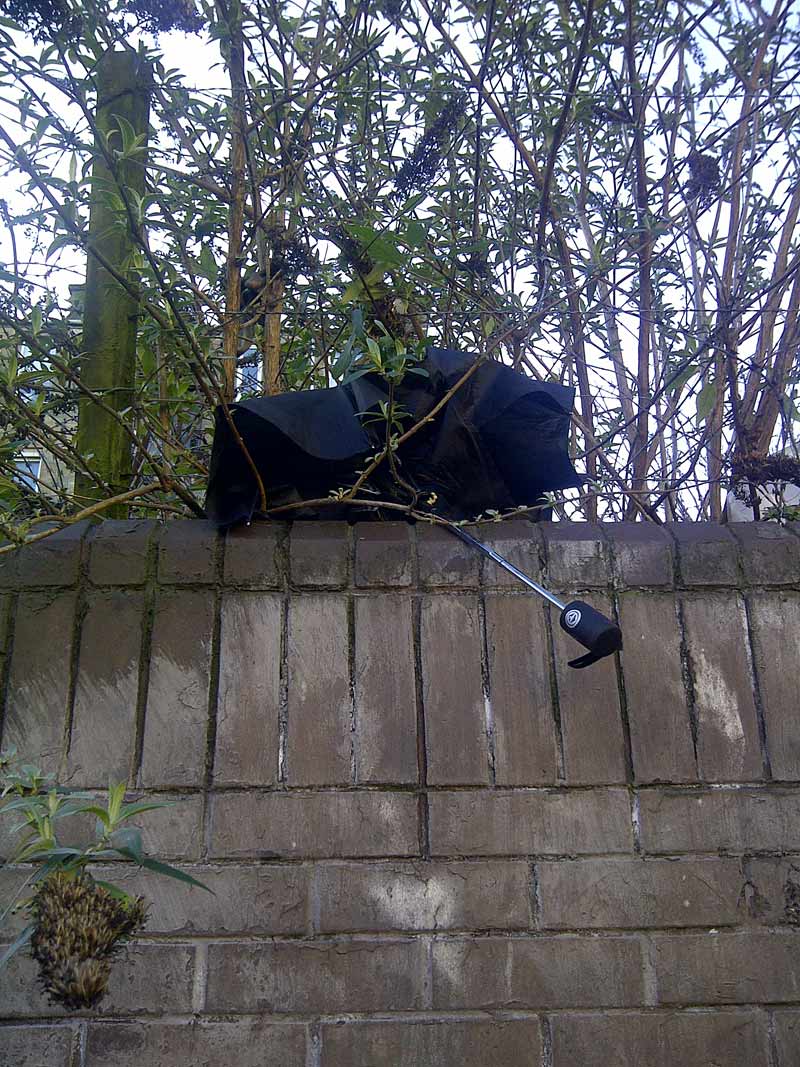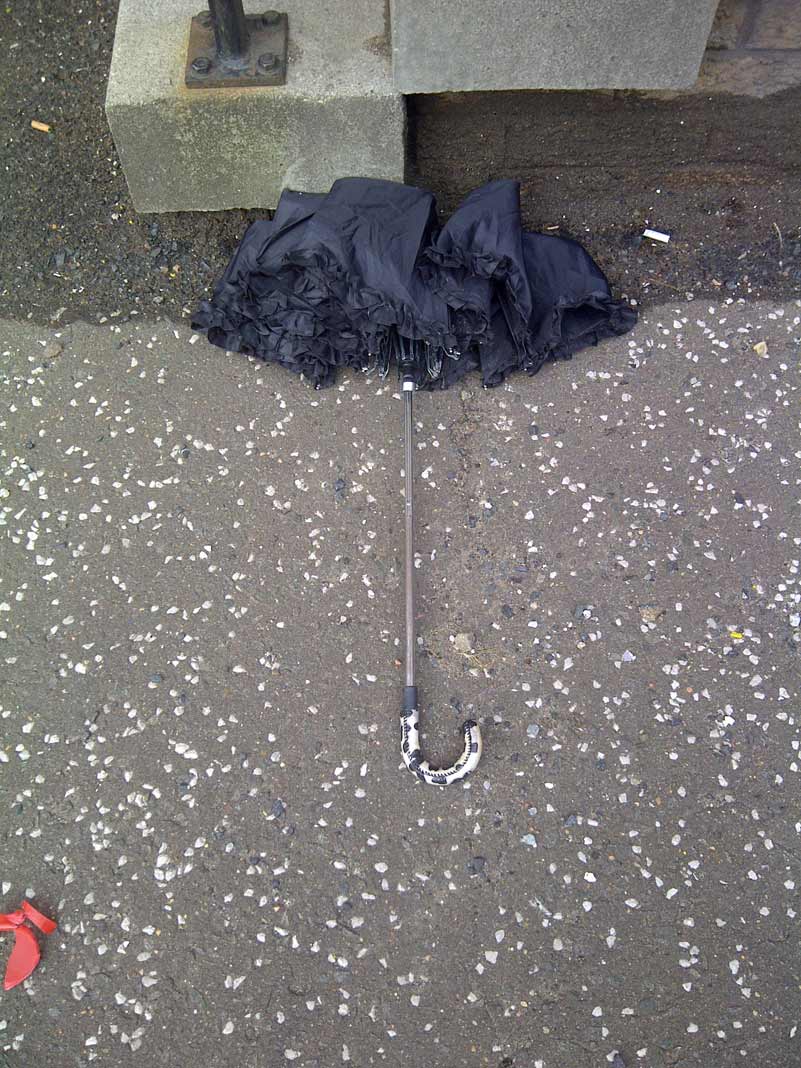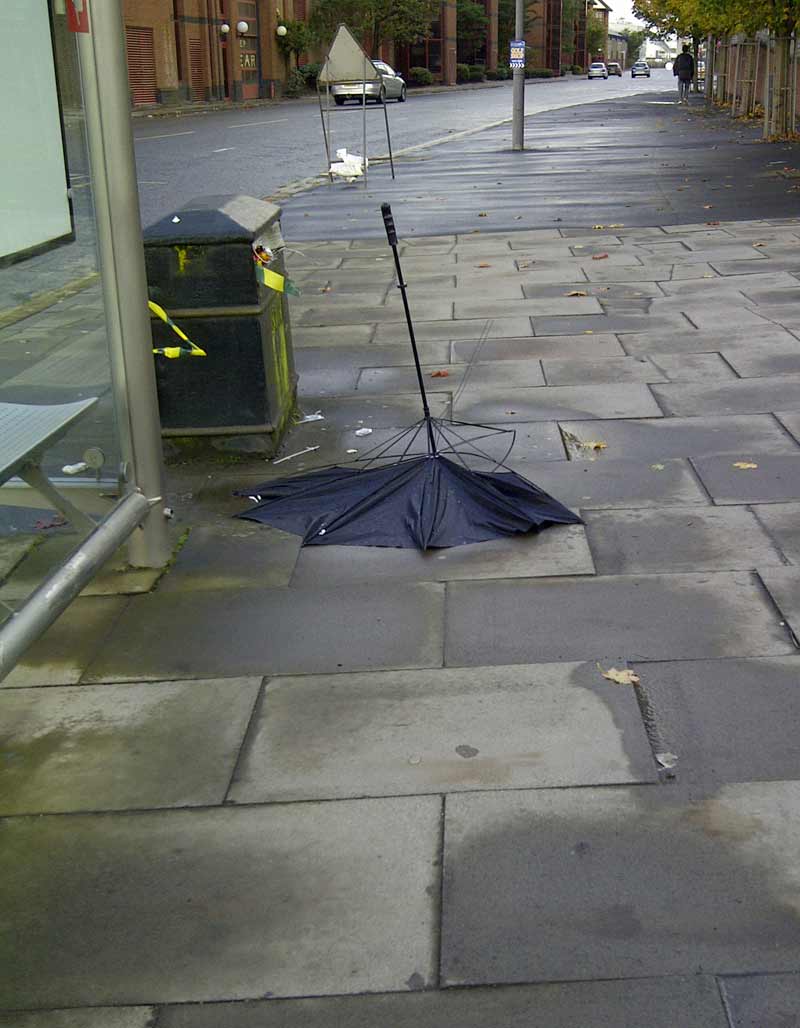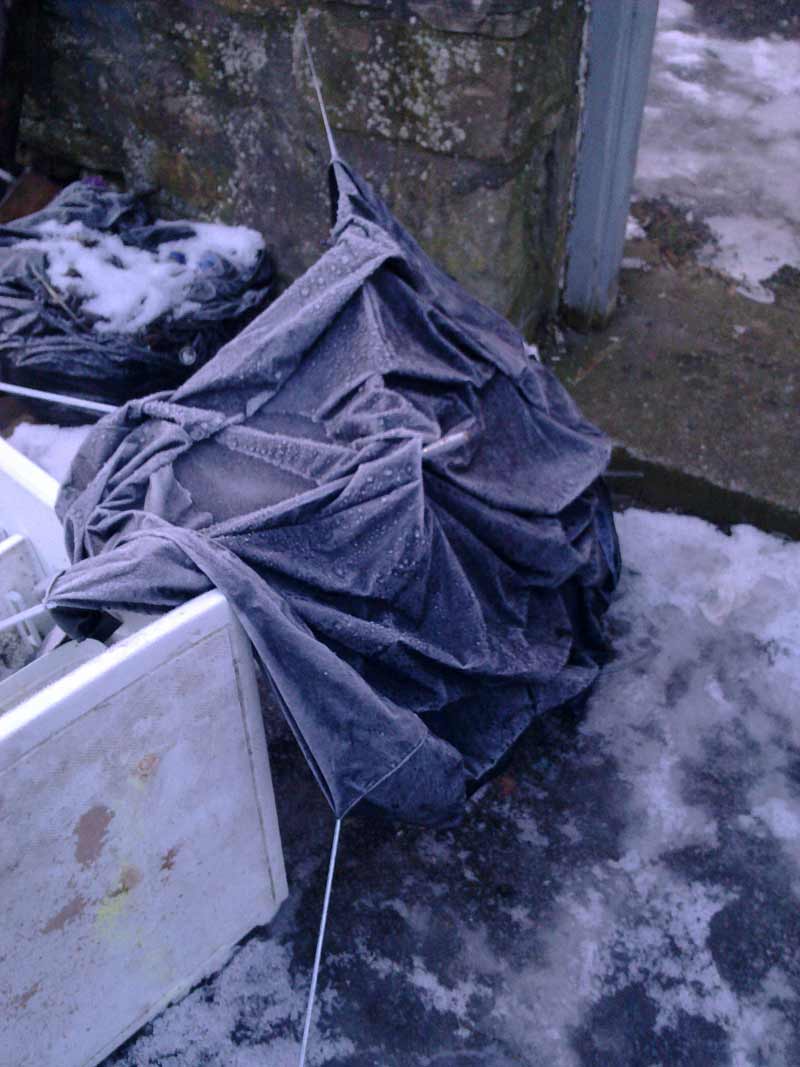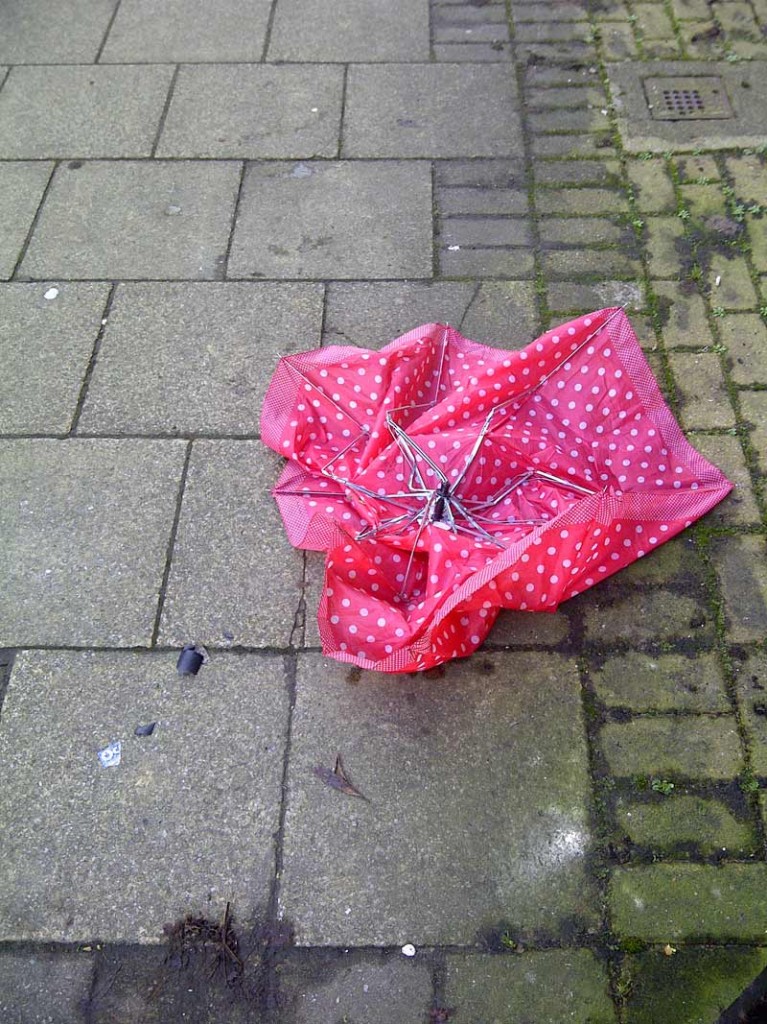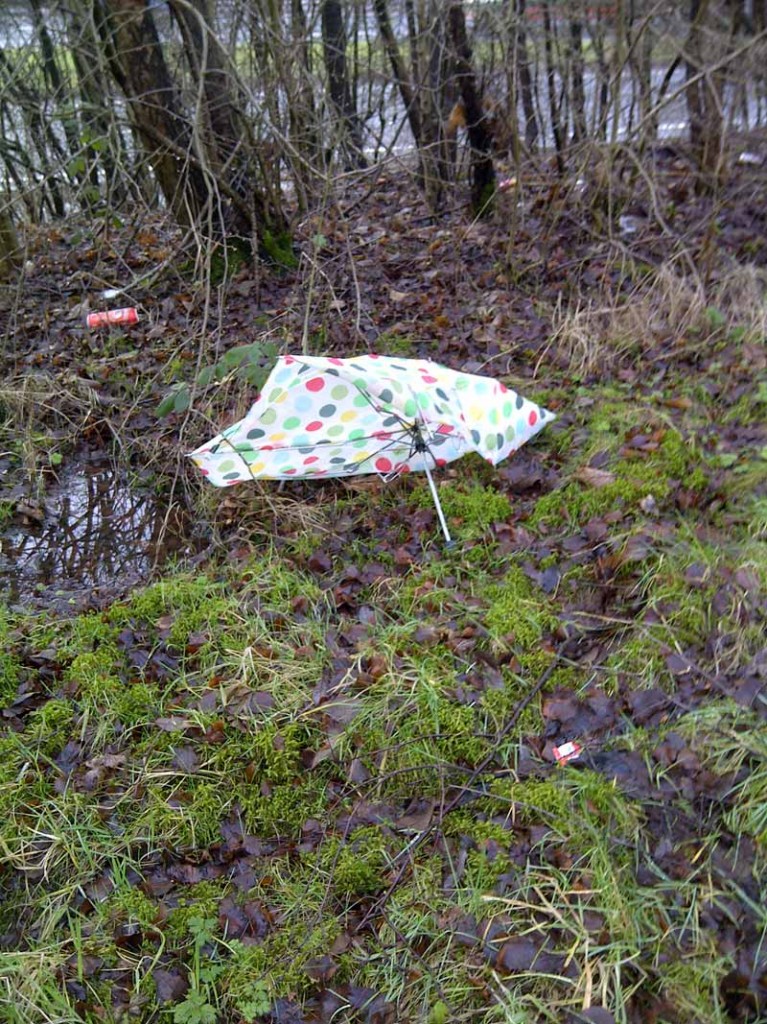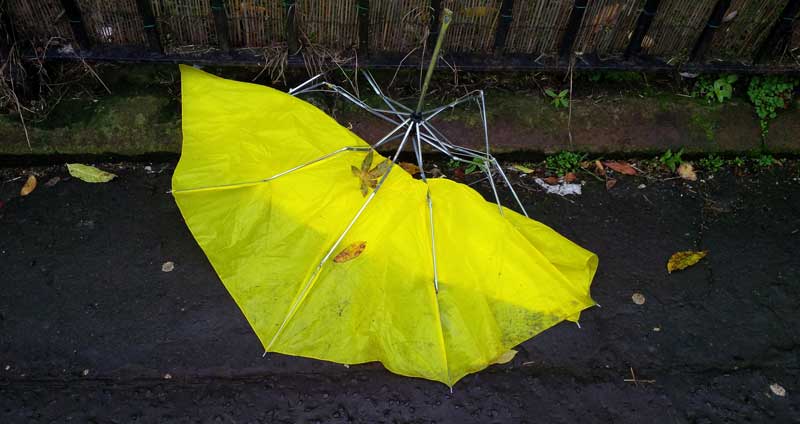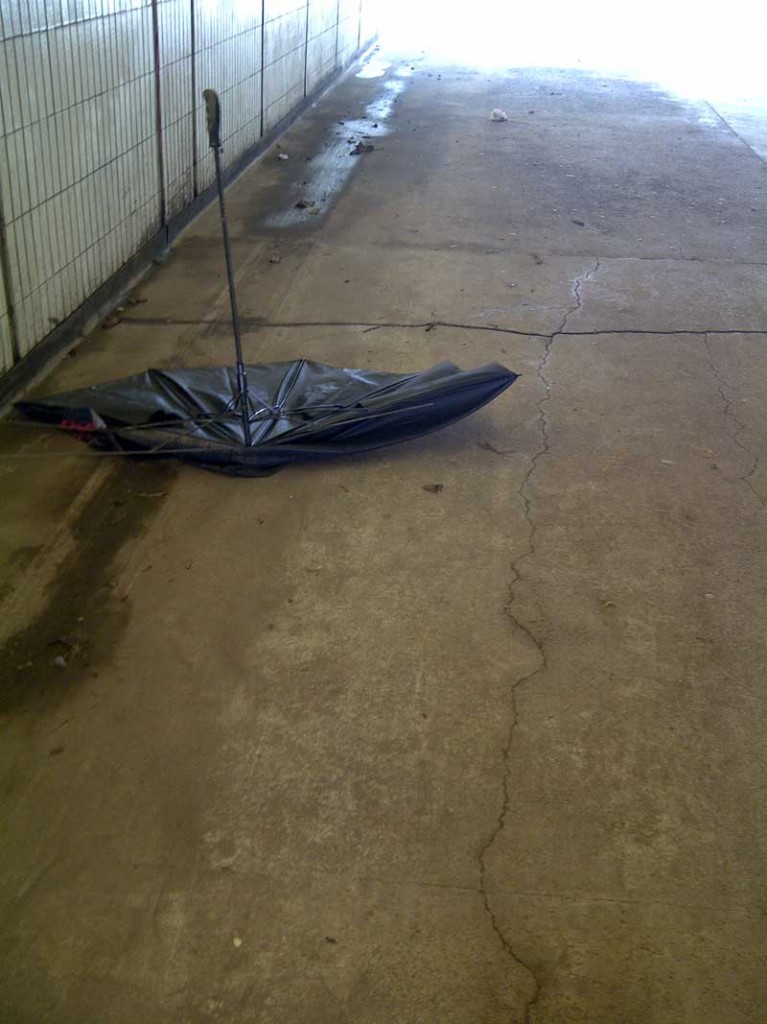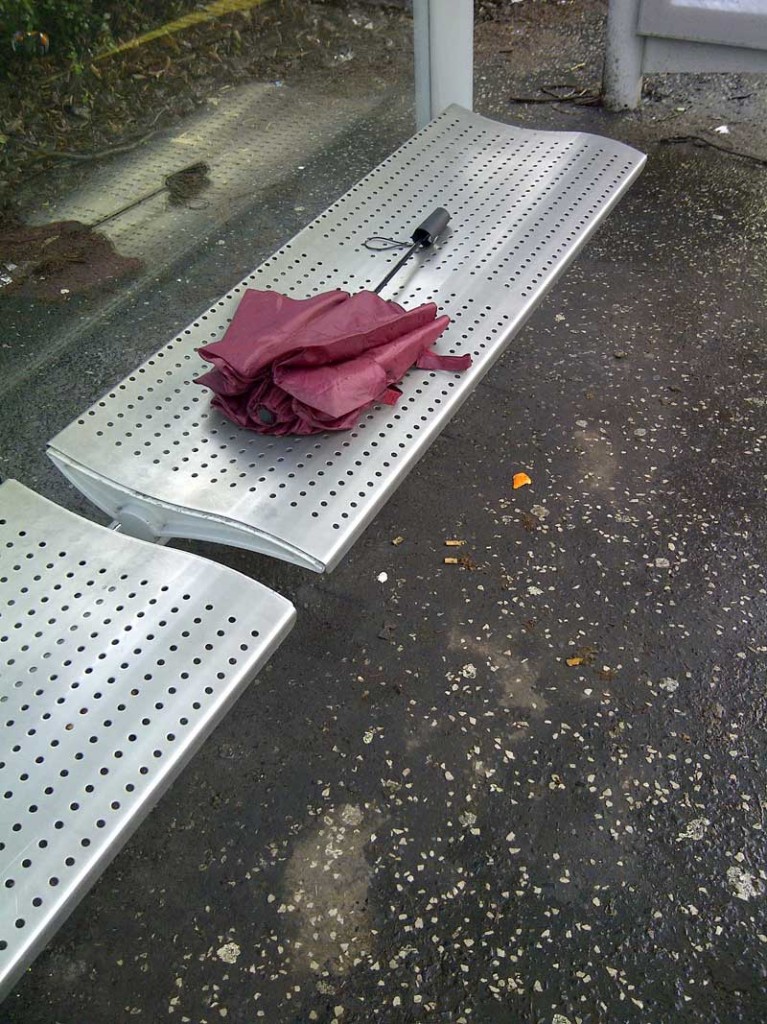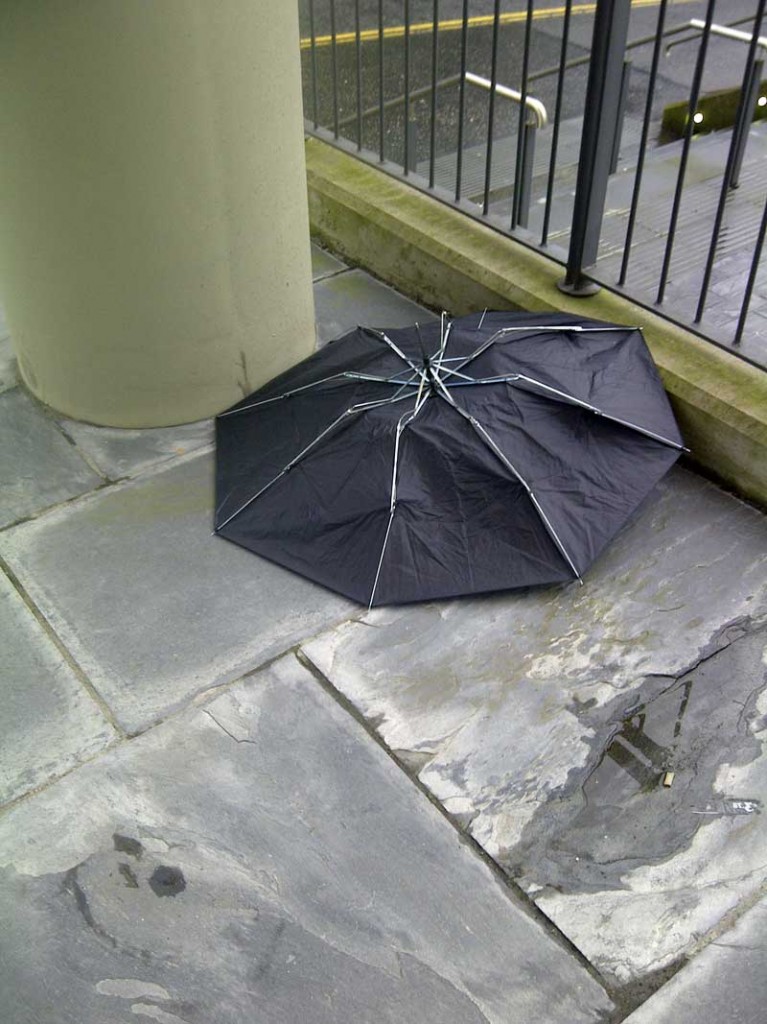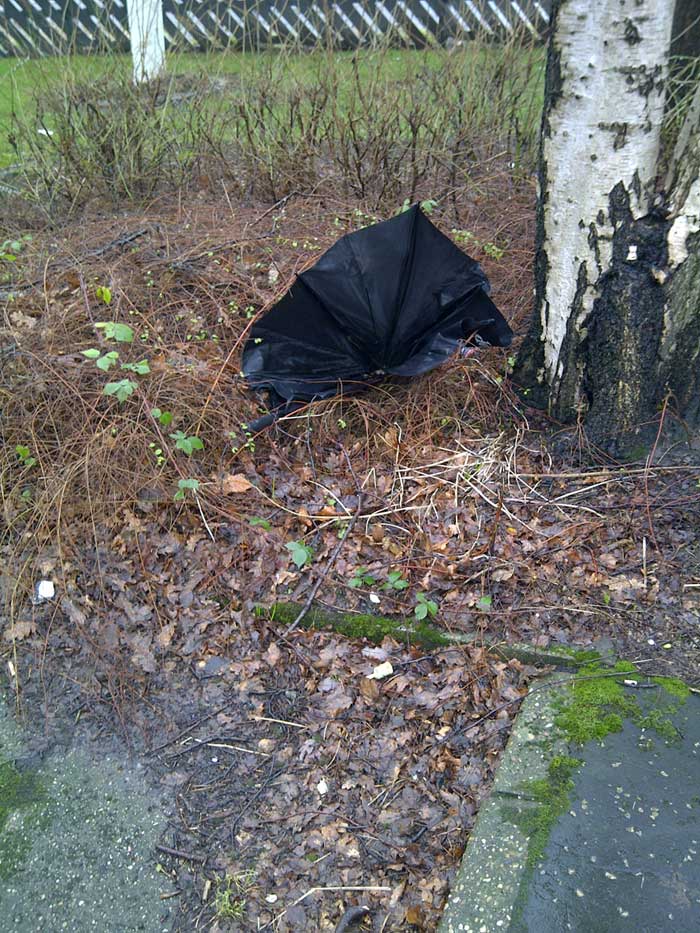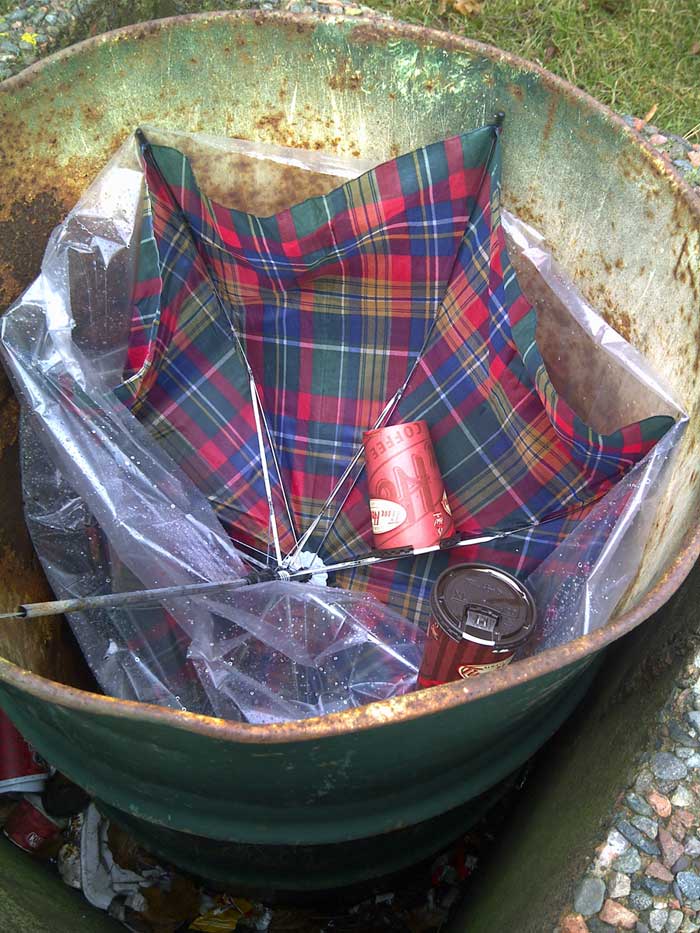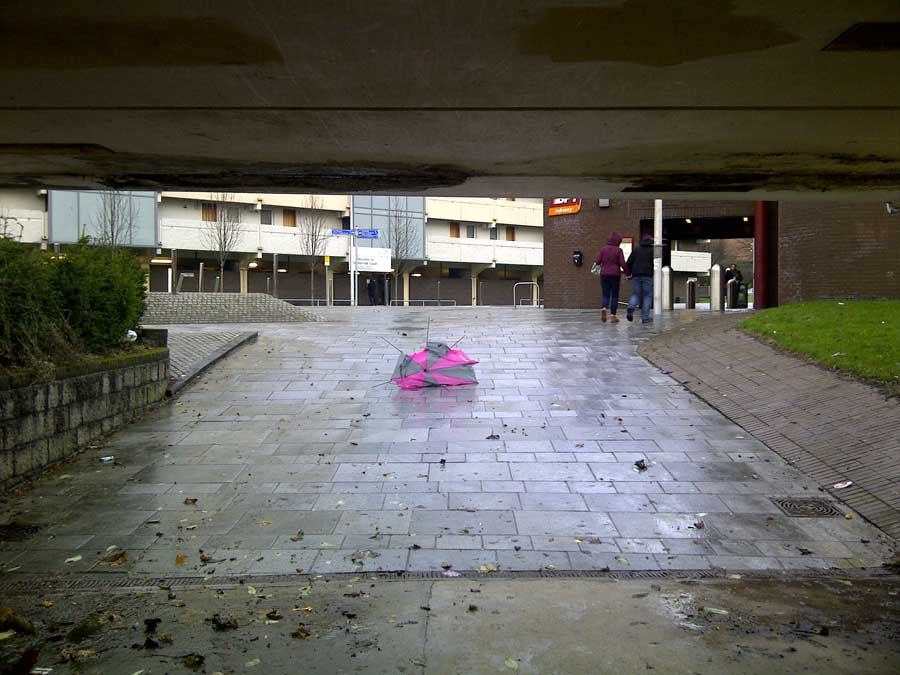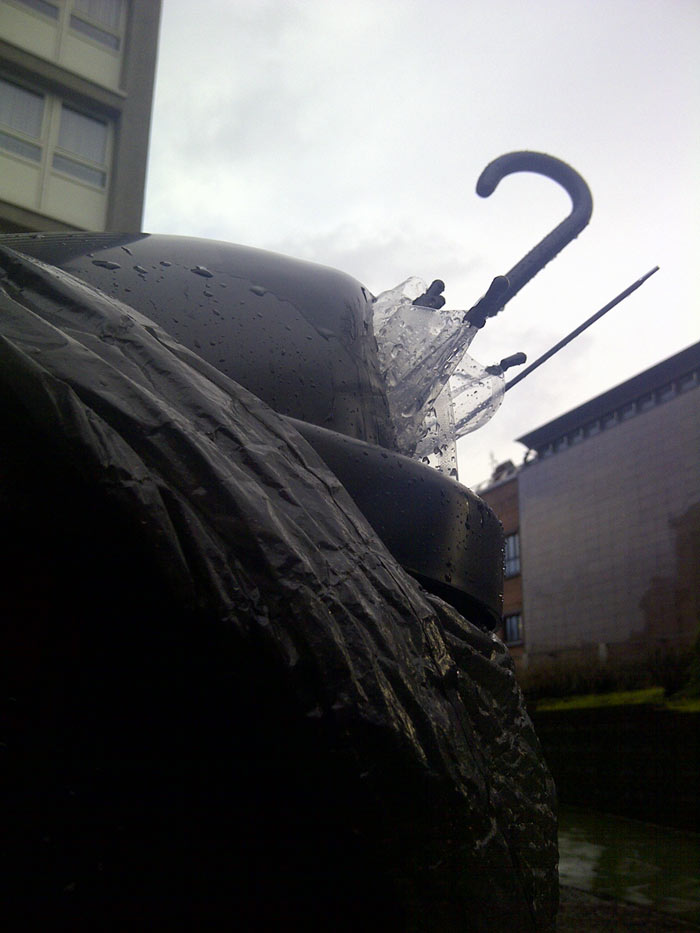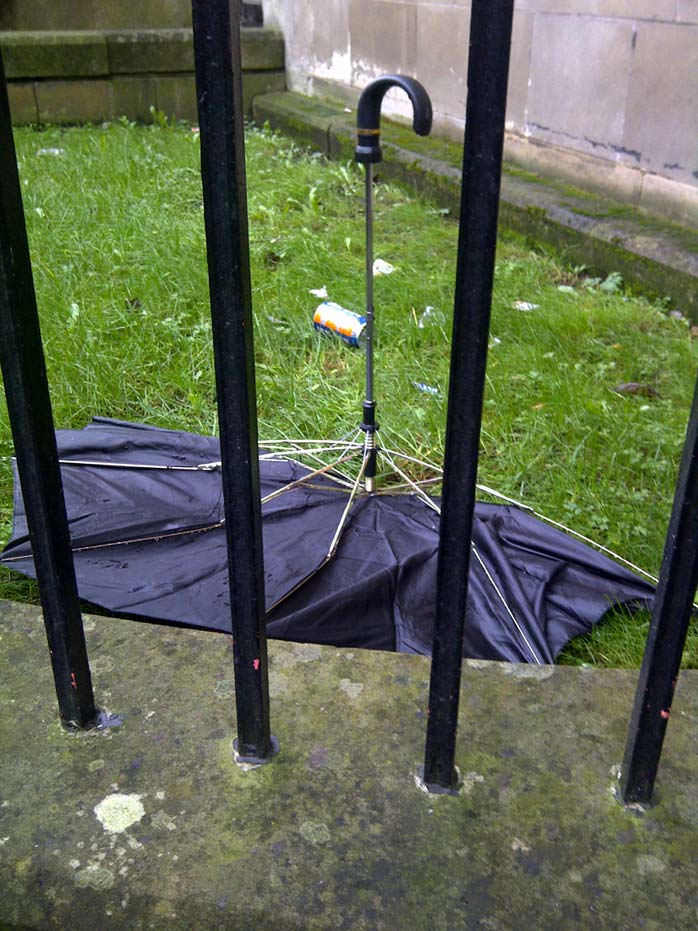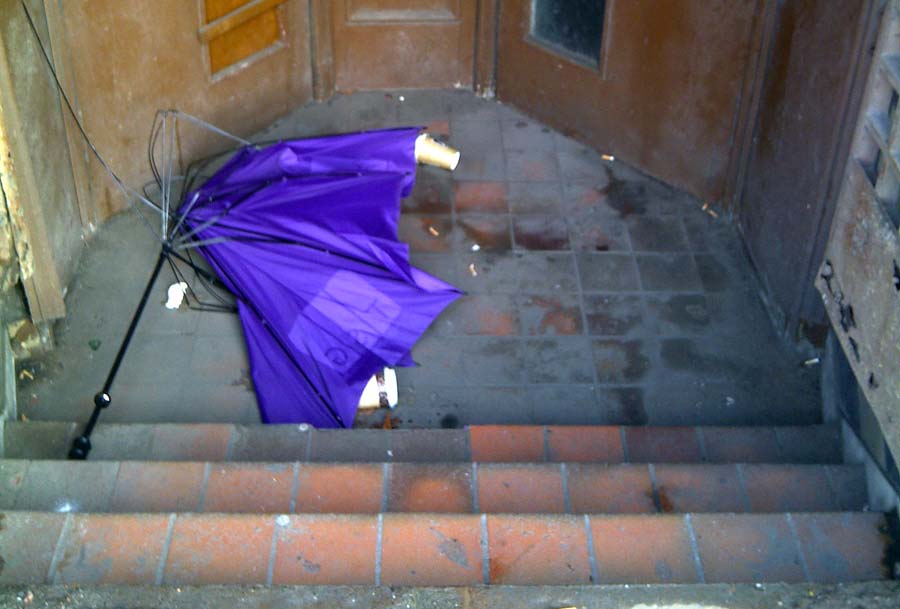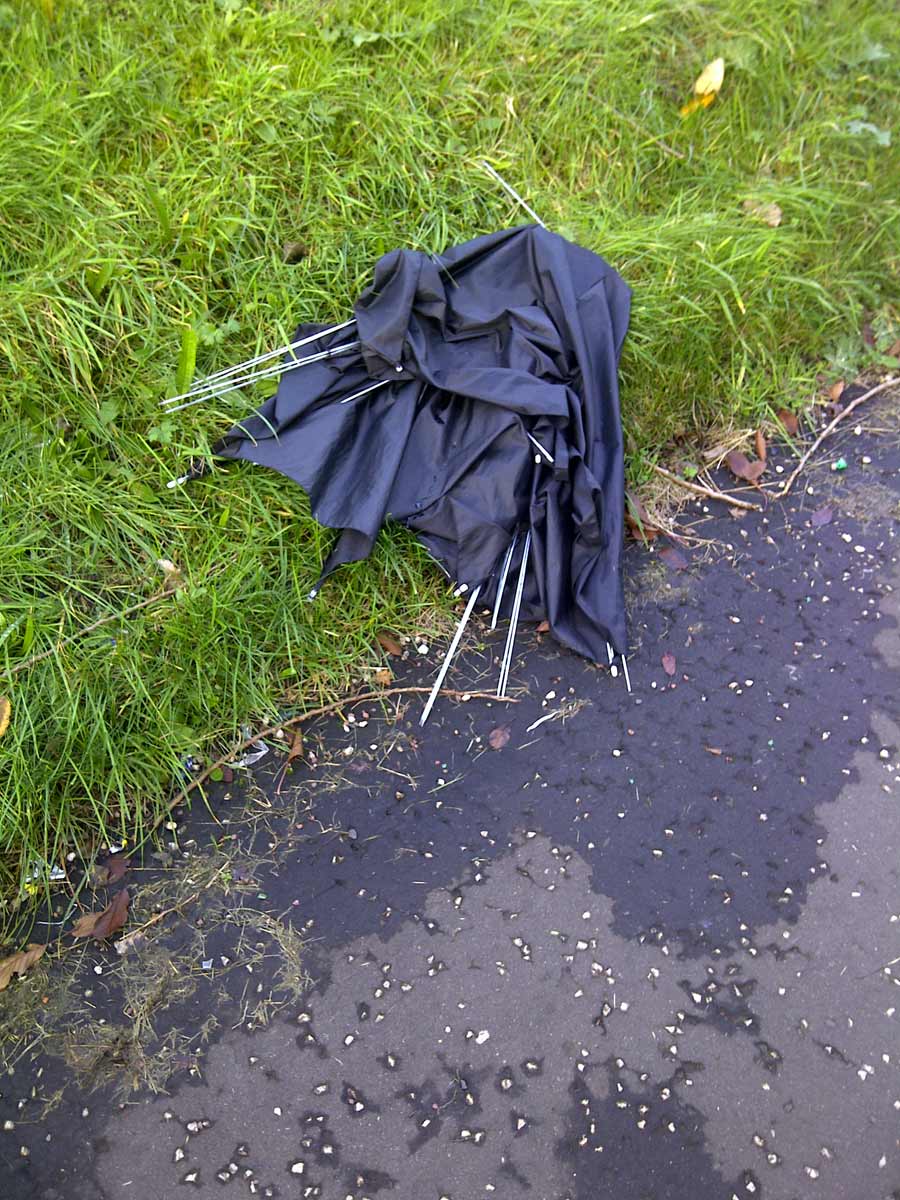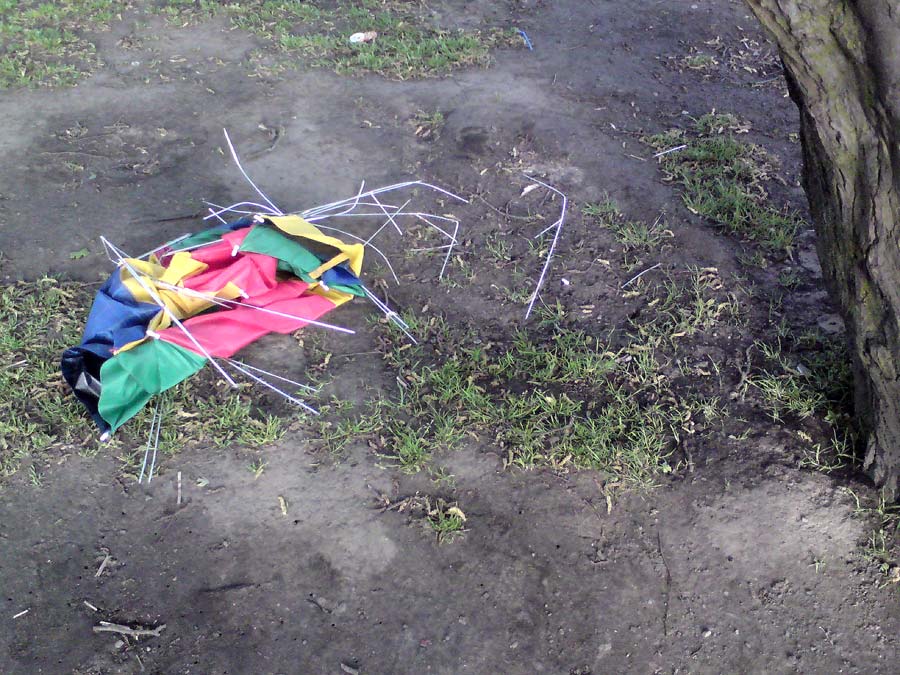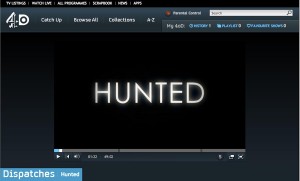The weather doesn’t like umbrellas, but Tomorrow likes the positions they get themselves into once broken. So, we’re marking Broken Umbrella Monday (#BUMonday) with weird and wild examples of these once proud shelters of all colours and shapes that are no more. Your week can only get better from a broken umbrella.
Category Archives: Blog
Stephen Sutton and comforting the afflicting
Bias in reporting is something many in the ruling classes will rail against, as will the public, if you ask them. Every outlet is perceived to have some slant. Reporters are asked “what angle are you taking?” by press officers and interviewees before they utter another word.
The death in the UK this week of 19-year-old Stephen Sutton from cancer is an altogether different example. The notice of his passing, posted by his mother on May 14, had 200,000 messages of condolence after two days. “RIP Stephen Sutton” and variations of it trended on Twitter. Some columnists and/or reporters – it’s difficult to tell with some – described writing their pieces about Mr Sutton’s death through tears. Many news outlets tweeted their own RIP messages while linking to the story, something that is not universal when reporting a death. Is that bias? Is it balanced or fair? Is an organisation merely exploiting hashtags, and is that okay when trying to bring attention to a legitimate story?
When so many purported news outlets blur the lines between reporting and opinion, and so many reporters give opinions via social media, this becomes a question of what bias is acceptable. Purists in North American journalism circles in particular will emphasise “objectivity” above all else. There is no such thing as objectivity when the placement of each word is such a personal choice by the reporter first and then sometimes multiple layers of editors.
One of Tomorrow’s most complicated core principles is to “comfort the afflicted and afflict the complacent” (#5). The first part of that raises questions about who is afflicted, what kind of affliction and how does a news organisation offer “comfort”?
Part of our actions as reporters in this context is covered by the other core principle about our professionalism (#4). “Comfort” can come in the form of reporting a public health threat of which a community might be otherwise unaware. And some of it can be as simple as offering a hand and the time to let someone tell their story in their own way, to explore with them, even with a critical eye.
The hardest questions any reporter ever has to ask are to a grieving friend or family member of someone who has died, in almost any context. We knock on the door to find humanity at its most raw, most sensitive and vulnerable.
There is a public appetite for information and for the quotes and stories that touch us. Readers, viewers and listeners seek them out, as both a distraction from frequently inhuman office life and to force ourselves to be reminded of the value of life and people around us. It is guttural. And reporters are human. Some can detach themselves, and even being affected by interviews and stories will rarely affect the quality of reporting.
But comforting the afflicted means sharing human moments. So many people – reporters and non alike – were affected by Stephen Sutton’s very mature approach to life and death. He tapped into the raw “humankin” – an almost innocent base foundation upon which are built life’s choices and consequences and accidents, all of which make up the reporting you see every day. Comfort the afflicted means and requires seeing that universal humankin, and then the deviations and detours away from it.
That’s why it is wrong and a breach of a core journalism principle for news outlets to rank stories according to whether a missing child is white and blonde or a murder victim is a woman or a “prostitute”. “The afflicted” does not rank some humankins as more worthy of comfort than others. Victims who have been afflicted by crime or accident require a measure of respect, dignity and care, all while meeting other journalism duties of reporting accurately etc.
Some journalism theorists argue that all potential sources of bias should be declared in advance by reporters, and social media posts used in evidence of potential bias. This is frequently used to dismiss facts that individuals don’t want to see or hear.
But evidence of being human, of recognising fellow humankind, is not a fatal bias; it is a duty of reporting. Commenting on it blurs the lines between reportage and opinion, but across both, “comfort the afflicted” means the reporter is part of the story. They are present as witness and interrogator and prism through which to reflect the colours of humankins to our readers, listeners and viewers.
Those who met or felt they knew Stephen Sutton were merely doing their jobs when they were affected. Professional reporters should continue to be affected.
World Press Freedom Day – our responsibilities
THE Council of Europe has called for its members to protect whistleblowers and journalists to mark World Press Freedom Day on May 3.
The institution, which includes the European Court of Human Rights but has no legal power itself, urged its 47 nation members to meet their “obligation” to protect reporters and create “legal frameworks” to protect whistleblowers.
In a press release, the council’s executive issued a “Recommendation on the protection of whistleblowers”1 and a “Declaration on the protection of journalism and the safety of journalists and other media actors”2. Russia objected to the “other media actors” reference.
Under Tomorrow’s eighth core principle, we must “be a safe harbour for the public and staff”. This principle ensures we look out for our staff in the process of doing their jobs as much as possible, and for those members of the public who might report stories to us but fear the consequences.
As outlined in greater detail in our section on Safe Harbour, these requirements should be a prime function of any media organisation. We cannot rely on any nation state, international body, or even local group, to protect the public simply because of laws, recommendations or declarations. The public should seek out those organisations which will do their best to report news accurately and protect sources, just as a news outlet should seek to reassure potential sources that this is the standard it aims to meet.
World Press Freedom Day should remind the planet of the important job reporters do and frequent threats faced by too many to life and liberty while in the pursuit of a story.
But it should also be a reminder to that press to use the freedom they hold so high to good ends, to justify that freedom to our readers, viewers or listeners. And we must do so daily – or rather, through each report. That is how we will achieve a better appreciation for reporting, for facts, and for those who present them.
Then, when those nation states or private corporations fail to protect whistleblowers, when individuals or military forces attack reporters, we can say, “We gave them a safe harbour for the truth”.
- Council “Recommendation“. ↩
- Council “Declaration“. ↩
Why we must watch the Winter Olympics

Scottish brewery BrewDog released a new beer in time for the Winter Olympics, directly targeting the anti-homosexual laws of Russia.
CAN we watch the Sochi Winter Olympics when they open on Friday?
Many of us are torn. The coverage of the rampant homophobia in Russia at the moment has been rumbling in the background for months, but a Channel 4 documentary aired in the UK on Wednesday night showed its alarming extent.
“Hunted”1 reported vigilante gangs openly going out to hunt gays for sport. These “safaris”, as they gleefully called them, are not fringe when the Russian Orthodox Church openly denounces homosexuals and the law criminalises anyone for speaking even in favour of equality for the LGBT community.
These gangs entrap innocent Russians, humiliate them, subject them to violence, and happily film it all to post online for thousands of people to revel in digital mob hate.
Knowing that there is such state-sanctioned and society-wide hate has led to many calls for boycotts of the entire games by everyone, or sponsors at least. Nothing is so simple here.
In our heads, we might know that we should keep separate the sport that goes on in Russia, and its laws and actions as a state, and separate those from the actions or inaction of its citizens. But confronted by evidence of hatred, it is hard for the heart to make those two puzzle pieces fit.
There is no nation on earth that is without flaw, without those who hate. The world allowed China to host the 2008 Summer Olympics and continue to do business with the nation, only occasionally muttering something about their human rights record.
Scotland will host the 2014 Commonwealth Games in Glasgow in July, welcoming some countries that have horrific homophobic laws in place. Their athletes will be welcomed without hesitation or condemnation. It is not necessarily a comfortable position, but it is what we’ve got.
“The sport has nothing to do with what happens in those countries,” is the theory. We compartmentalise when it suits us, and condemn when we feel like condemning.
The call to boycott, to denounce, to demand action or penalties is the new norm, particularly via social media. We post pictures of those we disagree with or fear – and this is hardly limited to Russia – as a way of silencing other humans, of saying, “This person’s voice is not legitimate and I can ignore them, while exposing them to others”.
Anyone who is in any way less morally pure than we pretend ourselves to be, must be boycotted. It is as bad as those who limit the right to assemble, whether in Britain or India or Russia or Egypt, or limit the right to speak, whether in Russia, Egypt, Iran or China. Boycotts are a limit on debate and consideration of these complex moral questions.
When someone says something you don’t like, should you turn away and ignore it? No, you must listen more, you must watch more, you must ask more questions. Apathy and complacency are this world’s greatest threat.
Tomorrow’s fifth core principle is “comfort the afflicted and afflict the complacent”. The stories you might want to ignore are the ones we must work harder to show you.
If you don’t observe and engage (principle 9), you cannot debate and improve the community (principle 11). Being a safe harbour (principle 8) and comforting the afflicted is not mutually exclusive of listening to those who want to do the opposite.
Boycotts and switching off to the moral mazes that hurt our heads and hearts are the easy things to do on social media, but they are wrong. They will not make this world better. They will not bring equality. They will not bring security to the citizens of those nations who turn on their own people as a way of distracting the masses from state ineptitude and corruption.
Do not turn away from the Winter Olympics. And do not turn away from the news from Russia when the games are over. Boycott your own apathy and your avoidance of the world’s hardest questions.
Mr Smith goes to Washington – but why?
Mr Smith might have gone to Washington, but he is increasingly unavailable for comment.
“Mr Smith declined to comment.”
“Mr Smith did not reply to queries by email.”
“We would rather not venture into that.” This last one was from the press officer at a university full of supposedly independent experts. None was willing question a governmental press release.
If press releases can’t be questioned, if elected officials won’t be interviewed and only issue statements, if Mr Smith won’t comment to the press, how can journalism exist? Is it even the same journalism anymore?
Increasingly, with lines blurred between reporting and comment, most high-profile individuals and official bodies (corporate, governmental or otherwise) know that they don’t need an independent press. They need merely issue statements, run campaigns and cater to followers who will agree with stated positions or campaigns before they even come out. The answers are prepared so questions don’t need to be asked.
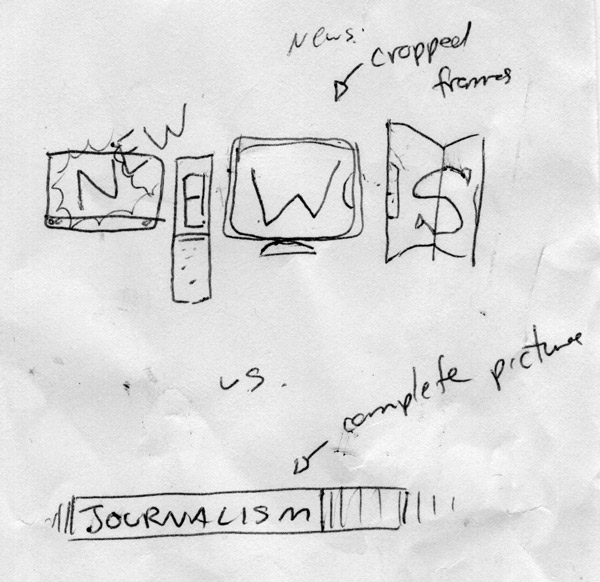
Artist in Residence Jason Skinner is exploring the difference between “news” and “journalism”, where news can sometimes just be a fragmented, quick summary, limited by particular mediums, versus the whole picture that journalism can offer.
Why should readers or the public care? The citizenry should always the institutions in society. They should also question the media and how much is or is not dictated to it by the institutions in society. It is too easy to compare press releases to news coverage in many markets. Sometimes those stories are minor and do not need much questioning. Others hide agendas or contradict positions.
As a news organisation, Tomorrow holds accuracy as a principle second only to our freedom to speak. That speech is harder to justify if inaccurate, and stories are less accurate if key parties don’t speak. But all the subsequent principles on our list require us to report. So, where is the cut-off point?
It is getting harder to get individuals to speak unless they feel in control of their own message. Years of media scandals have made that understandable. But a world where nobody answers questions will only breed a world where nobody asks them. That will suit many of those in power and those who are complacent (principle 5). But it does not suit the community. The comfortable in society want an unthinking citizenry. If nobody asks questions, if nobody is allowed to asks questions, everyone switches off.
On a practical level, for each story, Tomorrow must determine the point at which a story is accurate enough to run.
Too many media outlets, assuming a public lust for immediacy, will run without all facts or all sides of a story. Alternatively, no news organisation should wait forever.
Most recently, a key organisation has not replied to phone calls or emails requesting comment. After four weeks without answer, Tomorrow must now find alternative voices that will, and acknowledge in the story that “XYZ did not reply to requests to comment”. Our readers must then decide if that means something is being hidden and the story is less accurate, or whether they should bring their own citizenship to bear upon that organisation.
Reporters can ask questions and offer the community the answers or non-responses, as the case may be. But ultimately that same community also needs to ask questions and recognise the benefit of everyone sharing views and facts for the betterment of that community.
Tomorrow doesn’t tell readers how or what to think – we want you to ask questions just as we ask questions, and get answers.
It’s fine for Mr Smith to issue a press release that he’s going to Washington, but sometimes he will need to answer the question from both reporters and the public: “Why?”
Rob Ford and the dancing monkey
The year 2013 brought us back from the hacked dead on March 22 with more in-depth exclusive news and features, as well as our first campaign, #opentomorrow, and our first Artist in Residence, Jason Skinner.
How did we stat-up?
- Pageviews: 7579
- Unique pageviews: 6486
- Average time on page: 2min9sec
- Bounce rate: 85.18%
- Site income in 2013: £30 in donations.
Our story looking back at 30 years of Reading Rainbow was the most popular, followed by the story of the kosher butcher trial in Halifax 100 years ago and the indigenous hunger for food and knowledge in Canada.
We have a number of ideas for 2014 to continue building the site and hope to add new reporters and exclusive content, so please stick with us.
Various news outlets have named their “newsmaker of the year”, with some opting for Edward Snowden and others for Toronto Mayor Rob Ford. Tomorrow does not choose who makes the news. But this website also does not exist in a Twitter or news bubble, as so many news businesses choose to.
Declaring a “newsmaker” is a choice, showing bias and a desire by news organisations to be the gatekeepers of what is news. At its simplest, news is what is new, and much of the Rob Ford coverage was generated by news organisations, not by the subject himself. If you train a monkey to dance, then tell it to dance, and it dances, is that still news?
Just like with celebrity “news”, many reporters were assigned to one story, and even more columnists and commentators waded in, while other stories were ignored or abandoned. Any community is ill-served by this approach. The dancing monkey might still be dancing, but you’re missing the singing salamander behind you.
Tomorrow continues to look for the stories that are being missed or ignored because that builds a better community and meets our core principles. The community is our newsmaker of 2013 and will be again in 2014.
Happy New Year to all our readers.
Tomorrow appoints first Artist in Residence
Jason Skinner has been named Tomorrow’s first Artist in Residence. He will produce original illustrations and artwork to complement our news, features, investigations and other content, as well as helping us deliver our core principles and building community through news.
He describes his first piece for Tomorrow as speaking “to the ability of mobile communication technology to completely engulf us, block out the hustle and bustle of the world around us and entrap us in a situation that could be miles away. The figure in the piece has a sad/upset look on his face as he stares into his phone, meanwhile all around him the world wizzes by”.
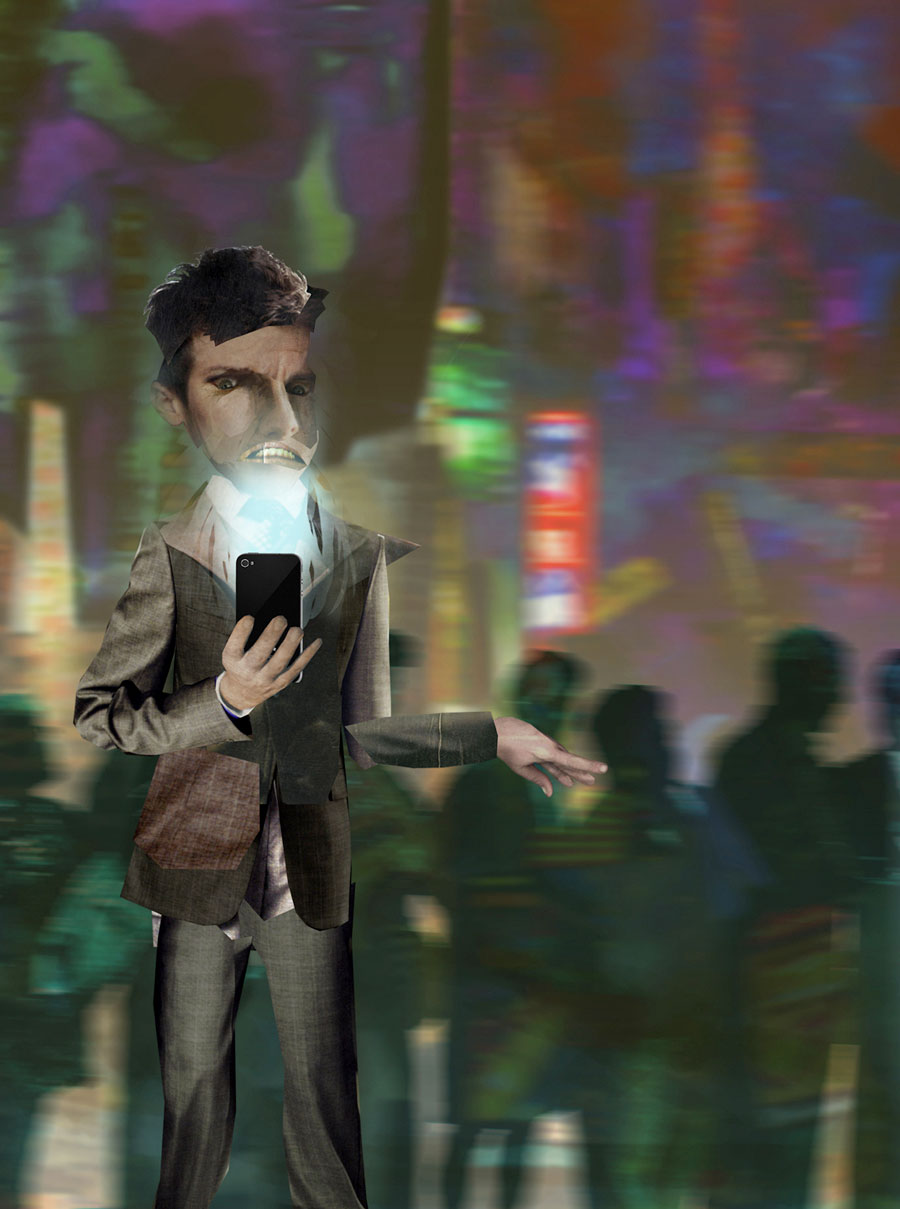
“This piece speaks to the ability of mobile communication technology to completely engulf us, block out the hustle and bustle of the world around us and entrap us in a situation that could be miles away. The figure in the piece has a sad/upset look on his face as he stares into his phone, meanwhile all around him the world wizzes by.” – by Jason Skinner, Artist in Residence. Creative Commons, Attribution-NonCommercial-NoDerivs 3.0 Unported
Jason was born just outside of Toronto, Ontario, and trained at Sheridan College before moving to Halifax, Nova Scotia, where he is currently based. During time with NSCAD, where he is an instructor, he was an artist in residence based in Lunenburg and has had a number of exhibitions throughout the province and elsewhere in Canada.
Find out more about Jason at http://www.jasonskinner.ca
Halifax news café pop-up
Join news website Tomorrow at Just Us! Café, 5896 Spring Garden Rd, Halifax, NS, B3H 0A6, on November 5, from 4pm to 7.30pm for a pop-up news room.
Reporter Tristan Stewart-Robertson would like to hear your stories – big or small, short or long.
What’s going on in your community? What stories are being missed? What’s been your experience repaying student loans? Have you worked for or applied to the Parks Canada Youth Ambassador Program? Want to chat about the future of journalism or media ethics? Debate the Scottish independence referendum?
Pop by Just Us! Café and let’s talk.
Royal baby: is it news?
There has been understandable criticism of the news media in various countries for its wall-to-wall coverage of the birth of British royal baby, Prince George.
On a basic level, Tomorrow focuses on exclusives so this is not something we would have covered as an organisation.
But many of the public criticisms raise important questions about how news outlets choose the weight of importance within individual stories and the extent of coverage overall.
Does the news media cover the birth of every human being? No. Birth is news to the respective family, and while most of the public would offer their congratulations and best wishes if asked, they might not view the birth of a stranger as “news”.
Yet plenty of stories involving strangers are presented as news. Social media has changed and expanded what “personal” and individual news might be classed as “relevant” or “interesting”. It is news to someone.
News is what is new – a birth qualifies in that respect, though speculation about possible names, or the reaction of family members, is not. This is a difference in news reporting: there is the reporting of what has happened, and the speculation of what might happen, framed as “news”.
The general public would generally agree that the birth of the third in line to the British throne is news – it has happened. They object to the speculation and comment being framed as news.
And just as the news media’s definition of news might not always be “news” to members of the public, some “news” for the public might not be news for the media. If a conspiracy theory, for example, has been disproved within a news outlet, does that require the organisation to report, “This isn’t true”? Not necessarily. If everyone is reporting something, must all news outlets report it? Is “news” following what everyone else is reporting?
There have always been various qualifications for news: the more local the better; report what people are talking about; and the infamous “if it bleeds, it leads”, ie presuming violence is always the most newsworthy.
And there will continue to be disagreement over what news organisations argue is news and what its readers or viewers believe to be news.
Tomorrow will continue to adhere to our core principles and we hope readers will challenge how we apply those.
Does data journalism work?
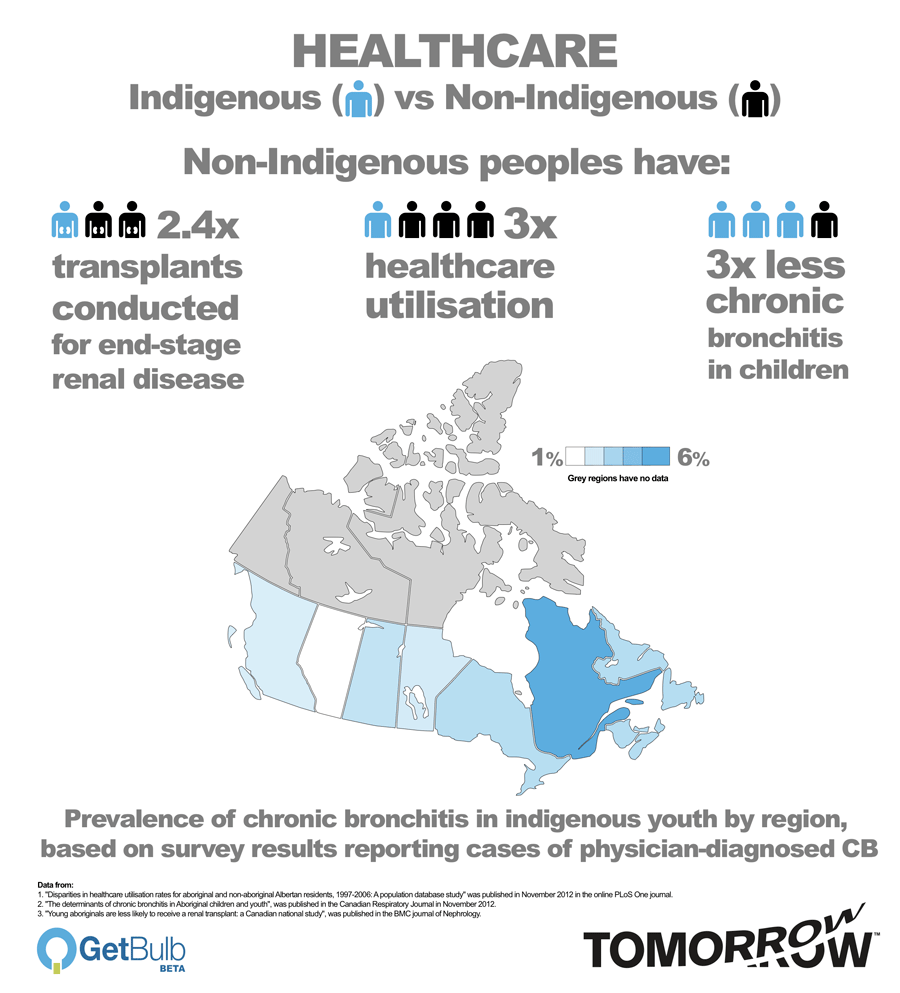 Tomorrow recently ran its first data journalism graphic as part of our reporting on the health inequity between indigenous and non-indigenous peoples.
Tomorrow recently ran its first data journalism graphic as part of our reporting on the health inequity between indigenous and non-indigenous peoples.
We worked with the winner of the 2012 Irish Times Digital Challenge, GetBulb, to take complex medical research data and present a graphic representation of the disparity and inequality found by studies in our feature. The image had our second highest “views” on Facebook in a year and the feature had the third highest number of hits according to Google Analytics.
There were multiple versions of the infographic created, each getting different reactions from those who saw them, hinting at the challenges of creating a single image that can be easily understood in the same way by anyone.
Reporters have to ask the questions to understand the story and reduce it to information that readers can then use to build their own understanding. A graphic is like the base of a valley. The data is the central stream where both reporter and reader meet, but both come from different sides of the valley and have different perspectives from those heights of knowledge and experience. The data remains the same but it doesn’t mean the interpretation will be.
Data journalism is an important part of what news organisations do. From the graphs showing stock market trends to pie charts of government spending, infographics have been part of reporting for a while.
For Tomorrow, infographics are part of what we need to meet our core principles, including on accuracy, openness and education – any medium and technology that can help us is to be welcomed.
We look forward to developing further images and graphics with GetBulb.
What did you think of the first graphic? What story should we consider that might involve some data journalism? Please get in touch.

